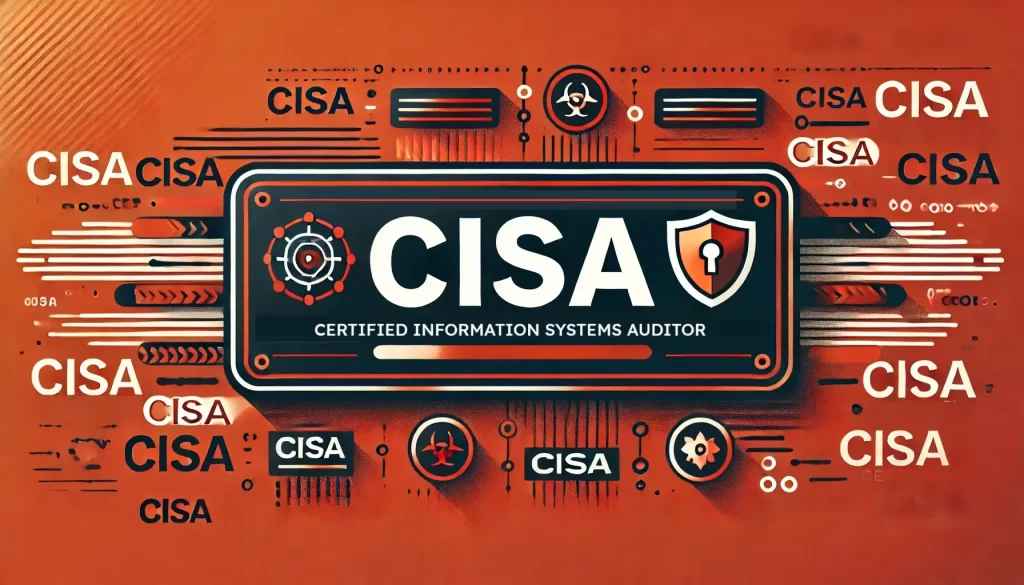If you’re considering a career in IT or cyber, specifically in networking, then you’ve probably heard of the CompTIA Network+ certification. It’s normal to wonder if it’s worth the time, effort, and money you’ll invest in obtaining this certification.
In this article, we’ll explore everything you need to know about the CompTIA Network+ certification, its benefits, potential drawbacks, and how it compares to other certifications in the field. By the end of this post, you’ll have a clearer understanding of whether the Network+ certification is the right choice for you.
Ready to Get Hired? Upload Your Cyber Security Resume Today!
My Opinion
Network+’s vendor-neutral approach makes it an excellent choice if you’re new to networking or not sure which vendor technologies you want to specialize in. However, since it’s a broad, entry-level certification, the knowledge gained will be more conceptual. It won’t have the depth or practical knowledge that comes with a vendor specific certification.
But, if you’re looking to build a foundation in networking or work with multi-vendor networks, the CompTIA Network+ certification is a great fit. It still offers you benefits, like better job opportunities, improved skills, and industry recognition.
Ultimately, whether or not you pursue the Network+ depends on your individual goals, interests, and situation. Carefully considering the factors I’ve talked about below, and you’ll be well-equipped to decide if Network+ is the right choice for you.
Understanding CompTIA Network+ Certification
The CompTIA Network+ certification serves as an entry-level certification designed to validate your knowledge and skills in computer networking. It targets those new to the industry or IT professionals looking to enhance their networking expertise.
This certification encompasses a range of topics, including network infrastructure, network operations, network security, and network troubleshooting. It is also vendor-neutral, meaning it covers networking concepts and technologies applicable to various networking equipment and environments.
CompTIA Network+ Exam Details
To obtain the Network+ certification, you must pass the N10-008 exam, the latest version released as of September 2021. This exam consists of 90 multiple-choice and performance-based questions, which you need to complete within 90 minutes.
The passing score is 720 on a scale of 100-900. The exam covers five major domains, each with its own set of subdomains and topics, such as:
1. Networking concepts (23% of the exam content)
– Network components, devices, and protocols
– OSI and TCP/IP models
– Network topologies and architectures
– IP addressing and subnetting
– Routing and switching
2. Network infrastructure (18%)
– Network device installation and configuration
– Wireless network standards and deployment
– Network cabling solutions
3. Network operations (17%)
– Network monitoring and management
– Configuration management and documentation
– Network performance optimization
4. Network security (20%)
– Security concepts and best practices
– Network access control
– Threat mitigation and prevention
5. Network troubleshooting (22%)
– Network troubleshooting methodology
– Troubleshooting tools and techniques
– Identifying and resolving common network issues
What Is the Cost of the Network+?
The cost of the Network+ exam is $358; however, this fee only covers the exam itself. If you’re interested in purchasing the optional study guides, practice exams, labs, and exam retake vouchers, CompTIA also offers packaged bundles ranging anywhere from $462 to $1029 (USD).
And though it’s not cheap, I always suggest to only use the official study guides and practice exams as they offer the most up-to-date content. But only you can determine a budget that works for you while considering the potential return on investment in terms of career advancement and salary growth.
Benefits of CompTIA Network+ Certification
Obtaining the CompTIA Network+ certification offers several benefits, such as:
Increased job opportunities: To begin with, the Network+ certification increases your chances of landing entry-level networking roles. It also serves as a stepping-stone to more advanced roles and certifications as you gain experience in the field.
Skills enhancement: In addition, the certification process ensures you have a solid understanding of fundamental networking concepts and technologies. This knowledge helps you excel in your current role or open doors to new opportunities, such as network administration or network engineering, later in your career.
Industry recognition: Furthermore, CompTIA is a well-respected organization in the IT and cybersecurity industries, and its certifications are widely recognized by employers. Having a Network+ certification on your resume provides credibility in the eyes of hiring managers and demonstrate your commitment to professional development.
Vendor-neutral knowledge: Finally, as the Network+ certification is vendor-neutral, it covers a broad range of networking concepts and technologies that apply to various vendors and environments. This is beneficial for professionals who work with multi-vendor networks or those who want a solid foundation in networking before specializing in a specific vendor’s technologies.
What Jobs Can I Get with a CompTIA Network+ Certification?
Obtaining a Network+ certification opens doors to various job opportunities, especially at the entry-level. Some job roles you may qualify for include:
Network Administrator: As a network admin, you’ll manage, maintain, and troubleshoot your organization’s computer networks, making sure everything runs smoothly and securely. You’ll be configuring network devices, monitoring performance, and implementing network security measures to keep everything safe from potential threats.
Network Support Specialist: Your role here is to provide technical assistance, troubleshooting, and maintenance for your organization’s computer networks. You’ll diagnose network issues, implement solutions, and offer support to users to ensure the network stays up and running optimally.
Network Analyst: In the role of a network analyst, your focus is on monitoring, optimizing, and securing your organization’s computer networks for maximum efficiency and performance. You’ll analyze network data, identify potential issues or vulnerabilities, and work on improvements to enhance the network infrastructure and security.
Network Field Technician: As a network field technician, you’ll be responsible for installing, maintaining, and troubleshooting network equipment and infrastructure at various client sites or remote locations. Your tasks will include setting up hardware, running cables, testing connections, and providing on-site support to keep the organization’s networks running smoothly.
Help Desk Technician: Working as a help desk technician, you’ll provide technical support and assistance to end-users experiencing issues with computer systems, software, and hardware. Your job is to diagnose problems, guide users through troubleshooting steps, and resolve issues either remotely or in person, making sure they have a positive experience and that downtime is minimized.
As you gain more experience and additional certifications, you may also qualify for more advanced roles, such as Network Engineer, Network Architect, or Network Security Specialist.
Factors to Consider Before Pursuing CompTIA Network+ Certification
Before deciding whether the Network+ certification is the right choice for you, consider the following factors:
Career goals: Think about your long-term career objectives and how the Network+ certification aligns with those goals. If you’re looking to establish a foundation in networking or work with multi-vendor networks, consider the Network+ certification. On the other hand, if you’re planning to specialize in a specific vendor’s technologies, think about a vendor-specific certification instead.
Prior experience: Though Network+ is designed for those with limited networking experience, having some hands-on experience or a background in IT can be beneficial. If you’re completely new to the field, you might want to start with the CompTIA A+ certification. The A+ certification covers basic IT concepts and provides an introduction to networking.
Commitment: Obtaining the Network+ certification requires a significant investment of time, effort, and money. As such, prepare to allocate time for studying, practice exams, and potentially attending training courses.
What Are the Downsides of the CompTIA Network+?
While the Network+ certification has numerous benefits, it’s also essential to consider its downsides:
Limited advanced topics: The Network+ certification primarily covers fundamental networking concepts. This might not be good enough if you’re looking to specialize in a specific area or advance your career further. Certifications like the CCNA or CCNP, are better if you’re seeking deeper knowledge in a particular networking domain.
Frequency of certification updates: As the IT industry evolves rapidly, the Network+ certification also needs to be updated regularly. This means you may need to re-certify or pursue new certifications to stay current with industry trends and maintain your marketability.
Competition with other certifications: The CompTIA Network+ is widely recognized and respected, but with other networking certifications available, the Network+ certification may not always be the most sought-after credential by employers. Some employers might prefer vendor-specific certifications.
Depending on your career goals and the technologies you’re interested in, you might need to pursue additional certifications to stay competitive in the job market. To gauge demand, research job postings and industry trends to see which certifications are most sought after by employers in your target market.
What Experience Is Required for the Network+ Certification?
While CompTIA doesn’t have any strict prerequisites for the Network+ certification, they recommend that candidates have at least nine months of networking experience and the CompTIA A+ certification. However, many individuals with limited or no experience have successfully passed the Network+ exam after thorough preparation and study.
It’s essential to dedicate time and effort to learning the material and gaining hands-on experience through labs or real-world scenarios.
How Popular Is the Network+?
The Network+ certification is well-regarded within the IT industry and is widely recognized by employers. According to Lightcast, more than 51,100 job listings posted during 2022 requested the CompTIA Network+ certification.
This popularity can be attributed to its vendor-neutral approach and focus on fundamental networking concepts. Of course, this makes it an appealing choice for both entry-level professionals and those looking to enhance their existing skillset.
How Long Is the Network+ Certification Valid For?
The CompTIA Network+ certification is valid for three years from the date you pass the exam. To maintain your certification, you’ll need to either retake the exam or participate in CompTIA’s Continuing Education (CE) program.
You need to earn 30 Continuing Education Units (CEUs) through various activities, such as attending training courses, participating in industry events, or obtaining additional certifications. By staying current with your certification, you’ll demonstrate to employers that your networking knowledge and skills are up-to-date and relevant.
Comparing CompTIA Network+ with Other Networking Certifications
Wondering how CompTIA Network+ stacks up against the others? Let’s dive right in and explore the key differences to help you make an informed decision.
First off, CompTIA Network+ covers a broad range of networking concepts and technologies from various vendors. This is great if you’re just starting your networking journey or aren’t sure which vendor-specific path to follow. However, some certifications focus on specific vendors, like Cisco’s CCNA or Juniper’s JNCIA, which are advantageous if you’re already working with or plan to specialize in a particular vendor’s technology.
The Network+ is an entry-level certification, perfect for those looking to build a solid foundation in networking. But, if you want better career advancement, you might need more specialized certifications like Cisco’s CCNP or VMware’s VCP-NV. These advanced certifications not only demonstrate a higher level of expertise but also open up more opportunities for growth in your networking career.
While Network+ offers a comprehensive overview of networking topics, other certifications may concentrate on specific areas, such as wireless networking. For example, CWNP’s CWNA certification or Aruba’s ACMA certification are geared towards wireless networking. Take the time to explore certifications that align with your desired specialization.
And lastly, although the Network+ cert is more affordable, you should consider the potential return on investment (ROI) for each certification. While some certifications may have higher upfront costs, they could lead to higher-paying job opportunities and career advancement, justifying the investment.
Tips for Preparing for the CompTIA Network+ Exam
Preparing for the CompTIA Network+ exam is a challenging yet rewarding experience. To help you succeed, I’ve compiled a list of tips to guide you through your preparation journey:
Use a variety of study materials: Don’t limit yourself to just one resource. Explore textbooks, video courses, online tutorials, and practice exams to get a well-rounded understanding of the material.
Create a study plan: Outline your goals, deadlines, and resources, and stick to a structured plan. This will keep you on track and ensure you’re covering all exam domains.
Hands-on experience: Practice setting up and configuring network devices, troubleshooting network issues, and securing network connections. This will give you practical skills that translate well to the exam and your career.
Join online study groups: Participate in online communities like the CompTIA subreddit to stay motivated and learn from others preparing for the exam.
Review the exam objectives: Familiarize yourself with the official exam objectives outlined by CompTIA. Use these as a guide to structure your study plan and ensure you cover all the necessary material.
Practice with performance-based questions: The Network+ exam includes performance-based questions that test your ability to apply your knowledge in real-world scenarios. Make sure you’re comfortable answering these types of questions.
Stay calm and confident: Most importantly…trust in your preparation, review your study materials, and maintain a positive mindset as you approach your exam date.
By following these tips and staying dedicated to your studies, you’ll be well on your way to success on the CompTIA Network+ exam.
Interested in More…
CompTIA Renewal: Everything You Wanted To Know!
Is the CompTIA A+ Certification Exam Worth It?
Is the CompTIA PenTest+ Certification Exam Worth It?
Why Take the Security+ Certification?
Is the CompTIA Linux+ Certification Really Worth It?



